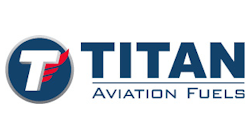Germany's ground support expertise has never been in question and the scope
and breadth of the country's manufacturers makes it one of Europe's most potent
exporters of industry solutions. In terms of capabilities, Europe's ground support
powerhouse has enviable strength in depth, from small organisations with expertise
in very specific items of GSE to a handful of companies with the resources to
tackle major turnkey airport infrastructure projects around the world.
Although the domestic market is considered comparatively large within the splintered
context of Europe, it is rarely enough, however, to sustain a growing business.
As such, most German manufacturers have long learnt not to differentiate between
national and international opportunities.
"The German market is good because it requires high standards and end users
ask for the very latest technology," explains Bernhard Mudler, Head of Department/Sales,
Aircraft Refuelling at Esterer. "But the market is too small and so the international
market is a must."
But while looking beyond Germany's own borders is important, taking advantage
of the 'Made in Germany' stamp is also a canny marketing move. "The German
market is indeed small, but it remains very important for us and the development
of our products," explains a spokesperson for belt curve manufacturer,
Transnorm System. "If we meet the highest levels of quality required in
Germany, then we are sure that we will not have any problem in our important
export market."
As with many of the larger European countries and regions - notably the UK,
France, Italy and Scandinavia - the national industry is galvanised by an industry
body, in this case, the German Airport Technology and Equipment Association
(GATE).
Led by long-time President, Dieter Heinz, GATE has worked hard to create a platform
for its many members across the industry and has become a regular fixture at
international trade shows.
Heinz has seen German manufacturers span the globe, but admits that this is
as tough a time as he can remember. "All of our member companies have experienced
different results because of what has happened to the industry in general,"
he admits.
Diverse customers
In recent times, GSE manufacturers in the US have discovered just how much it pays to develop a diversified customer base and the same applies in Germany. Some have little choice. Take refuelling vehicle specialist, Esterer, for example. Recognising the limited size of the market, Esterer has always tended to deal with a variety of customers on both the civil and military sides of the fence.
"Consequently," says Mudler, "there is always something to do."
For now, the situation is relatively rosy for Esterer, reports Mudler. Order
books are full and the company has just enjoyed one of the best years in its
near 50-year history. Much of this is due to a large contract with Shell, which
gained the company access to the Scandinavian market for the first time.
"During the last years the 'global purchasing strategy' of the major oil companies has brought a big change. If you have such a contract, it is fine, but if you fail, you have nothing," he warns.
Resources
Dr. Ing. Ulrich ESTERER GmbH & Co. Fahrzeugaufbauten und Anlagen KG
Tel. +49 5605 809 0 o Fax. +49 5605 2799
www.esterer.de
German Airport Technology & Equipment Association (GATE)
Tel. +49 6128 9472 90 o Fax. +49 6128 4594 3
www.gate-alliance.com
INFORM GmbH
Tel. +49 24 08 94 56 0 o Fax. +49 24 08 60 90
www.inform-ac.com
Rofan GmbH
Tel: +49 7156-4316 0 o Fax : +49 7156-4316 90
www.rofan.de
Siemens AG - Siemens Airports
Tel. +49 9131-746415 o Fax +49 9131 720390
www.is.siemens.de/siemens-airports/
Transnorm System GmbH
Forster Strae 2
D-3207 Harsum
Tel. +49 5127 4020 o Fax + 49 5127 4400
www.transnorm.de








